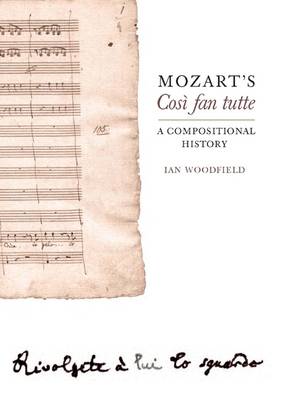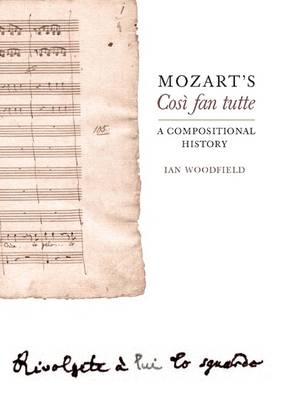
- Retrait gratuit dans votre magasin Club
- 7.000.000 titres dans notre catalogue
- Payer en toute sécurité
- Toujours un magasin près de chez vous
- Retrait gratuit dans votre magasin Club
- 7.000.0000 titres dans notre catalogue
- Payer en toute sécurité
- Toujours un magasin près de chez vous
177,45 €
+ 354 points
Description
An outstandingly significant feat of Mozart scholarship.... A fundamental reassessment of the early history of 'Così fan tutte' and a major contribution to its critical evaluation as a work of art. The author's scrutiny of the autograph score unleashes a torrent of information on how Mozart composed the opera, how he changed his mind or felt compelled to change his mind, how the nature of the work itself changed and, most startlingly, a frank exposure of its many unresolved issues. The detective work has the thrill of the chase, but the material will appeal beyond Mozart scholars to opera historians, biographers, musicologists, producers, conductors, performers, and those involved in performance practice. Professor DAVID WYN JONES, Cardiff University. This study proposes a hypothesis to account for some of the opera's long-standing 'problems'. It suggests that Mozart considered the idea that the pairings in Act II should not be crossed: that each of the two disguised officers should seek to seduce his own woman. Although this alternative plot structure was rejected, signs of it may remain in the final score, in the uneasy co-existence of dramatic duplicity and musical sincerity, and in the ending, in which the easy restitution of the original couples seems not to take account of the new passions that have been aroused. Evidence that several of the singers were re-cast is also presented. In addition to these radically new ideas about the conceptual genesis of 'Così', the book also provides a full account of the work's compositional history, based on early Viennese and Bohemian copies. Four different versions are identified, including a significant revision in which Mozart removed the Act II finale canon. The composer's probable involvement in the 1791 Prague production is also discussed. IAN WOODFIELD is Professor of Historical Musicology, School of Music and Sonic Arts, Queen's University Belfast.
Spécifications
Parties prenantes
- Auteur(s) :
- Editeur:
Contenu
- Nombre de pages :
- 264
- Langue:
- Anglais
Caractéristiques
- EAN:
- 9781843834069
- Date de parution :
- 18-09-08
- Format:
- Livre relié
- Format numérique:
- Ongenaaid / garenloos gebonden
- Dimensions :
- 155 mm x 236 mm
- Poids :
- 771 g

Les avis
Nous publions uniquement les avis qui respectent les conditions requises. Consultez nos conditions pour les avis.






